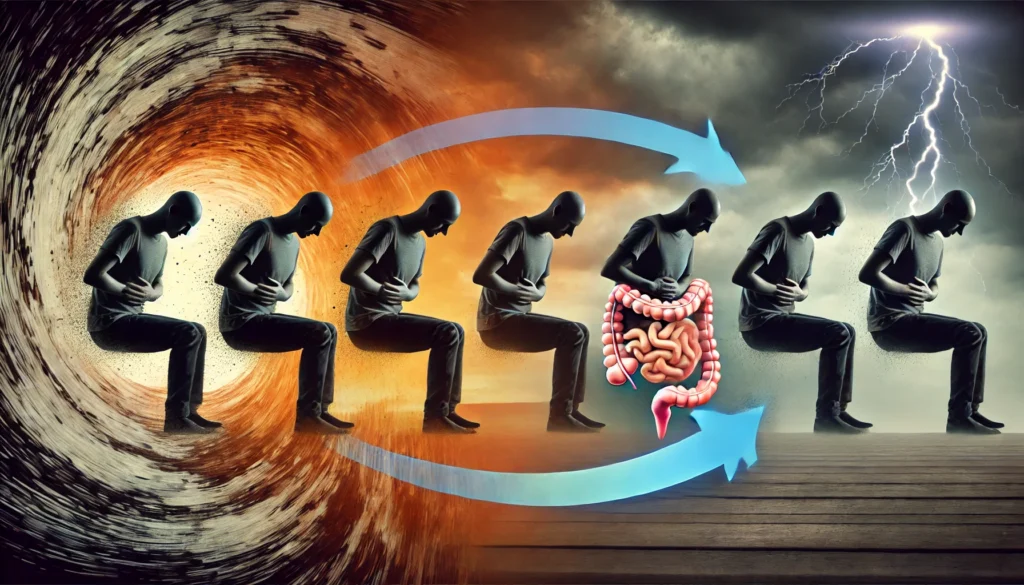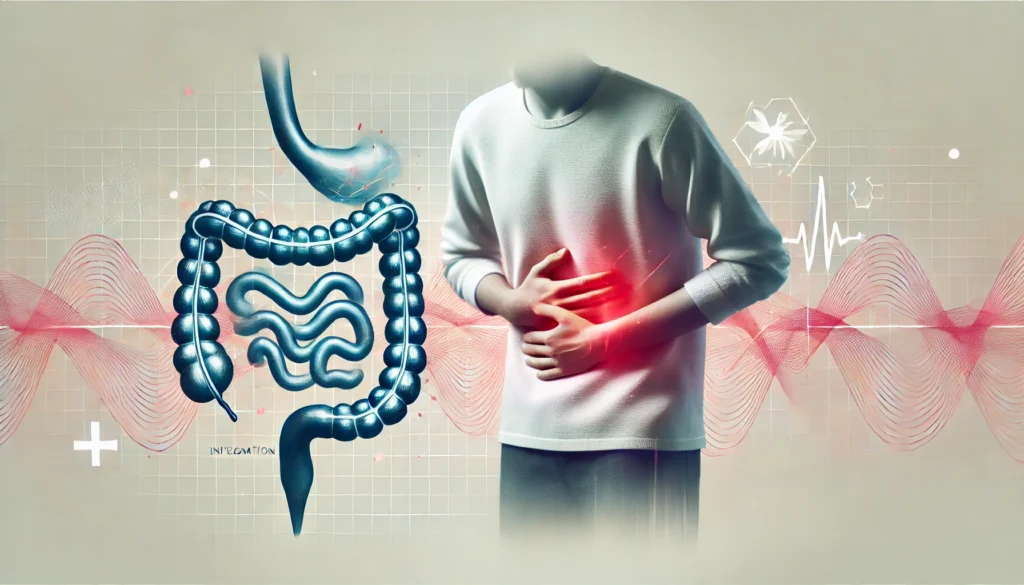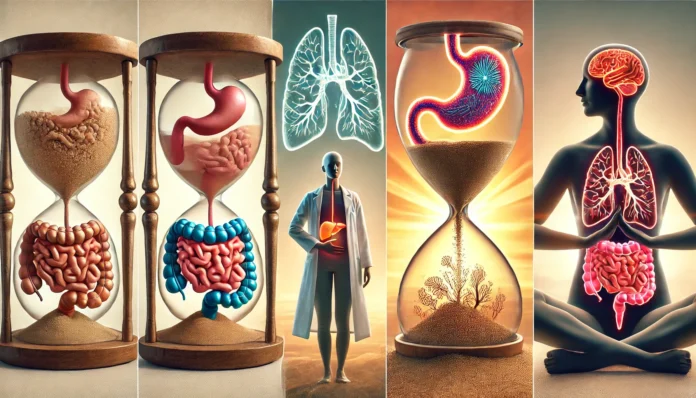Introduction
Irritable bowel syndrome (IBS) is a common yet complex digestive disorder that affects millions worldwide. It is a functional gastrointestinal condition characterized by chronic abdominal discomfort, irregular bowel habits, and symptoms such as bloating, diarrhea, or constipation. While IBS is not life-threatening, it significantly impacts quality of life, leading many sufferers to wonder: how long does irritable bowel syndrome last? The answer is multifaceted, as IBS varies in duration and severity from person to person. Some experience intermittent flare-ups, while others struggle with persistent symptoms for years. Understanding IBS symptoms, treatment options, and long-term management strategies is crucial for anyone seeking relief. This article explores the nature of IBS, how long it typically lasts, available treatments, and whether it can be cured.
You may also like: How to Improve Gut Health Naturally: Science-Backed Tips for a Stronger Microbiome
Understanding IBS and Its Symptoms
IBS is classified as a functional disorder, meaning it affects how the gut works rather than being a structural disease. The condition is divided into subtypes based on predominant symptoms: IBS with constipation (IBS-C), IBS with diarrhea (IBS-D), and mixed IBS (IBS-M). Each type presents unique challenges, making symptom management highly individualized.
People with IBS frequently report abdominal pain, bloating, gas, and changes in stool consistency. IBS symptoms in women are often influenced by hormonal fluctuations, with many experiencing worsening symptoms during menstruation. Symptoms of IBS constipation include infrequent, hard stools and straining, whereas IBS-D involves frequent, loose stools. Those with mixed IBS may alternate between diarrhea and constipation. IBS flare-up symptoms can be triggered by stress, certain foods, or hormonal changes, complicating the condition’s predictability.
How Long Does IBS Last?
The duration of IBS varies widely. Some individuals experience transient IBS, where symptoms improve within months, while others endure chronic IBS that persists for years. Unlike acute gastrointestinal infections, which resolve in days or weeks, IBS is a long-term condition. For many, IBS is a lifelong disorder that requires ongoing management. However, symptom severity may fluctuate, with periods of remission followed by flare-ups.
A crucial question many patients ask is, “Does irritable bowel syndrome go away?” While some report symptom resolution over time, there is no definitive cure. Lifestyle changes, dietary adjustments, stress management, and irritable bowel syndrome medication can help control symptoms and reduce flare-ups. Additionally, how long to get diagnosed with IBS varies. Some receive a diagnosis quickly, while others undergo extensive testing to rule out other conditions before confirming IBS.
Diagnosis: How Is IBS Identified?
Diagnosing IBS is often a process of exclusion, as no single test confirms the condition. Instead, healthcare providers rely on criteria such as the Rome IV criteria, which define IBS based on symptoms persisting for at least three months. Common diagnostic methods include stool tests, blood tests, and colonoscopies to rule out inflammatory bowel disease (IBD) or celiac disease. How to diagnose IBS involves assessing symptom patterns, medical history, and response to dietary or lifestyle changes. Many patients find the diagnostic process frustrating due to the absence of clear biomarkers. However, understanding the condition is the first step in effective management.

Treatment Options for IBS
Effective IBS management requires a combination of dietary modifications, medications, and lifestyle changes. The approach depends on symptom type and severity. IBS medication options include antispasmodics, laxatives for IBS constipation, and anti-diarrheal drugs for IBS-D treatment. Additionally, probiotics and dietary supplements may offer symptom relief.
Irritable bowel drugs target symptoms rather than the underlying cause, which remains unknown. Many patients ask, “How do you treat IBS?” The answer depends on individual triggers and symptoms. Avoiding common dietary triggers such as dairy, caffeine, and high-fat foods can reduce flare-ups. Stress management through techniques like cognitive-behavioral therapy and mindfulness has also proven beneficial.
Can IBS Be Cured?
One of the most pressing questions is, “Can IBS be cured or treated?” Currently, IBS is considered a chronic condition with no definitive cure. While symptom management strategies exist, the disorder often requires lifelong adaptation. Some patients find lasting relief through dietary changes and stress reduction, while others rely on medication. “Is IBS curable?” is a question without a clear answer, as remission is possible but unpredictable. Research continues to explore gut microbiome imbalances, which may hold the key to more effective treatments.
The Role of Diet in IBS Management
Diet plays a crucial role in managing IBS symptoms. The low FODMAP diet, which eliminates fermentable carbohydrates, has been highly effective for many IBS sufferers. This diet helps reduce bloating, gas, and diarrhea by removing foods that exacerbate gut irritation. Fiber intake is another key factor, with soluble fiber benefiting those with IBS-C while insoluble fiber can worsen symptoms.
Understanding how certain foods affect IBS symptoms helps individuals create a personalized diet plan. Many patients find symptom relief by keeping a food journal and identifying triggers. Additionally, hydration and regular meal timing can aid digestion and minimize flare-ups.
The Psychological Impact of IBS
IBS is not just a physical condition; it also affects mental well-being. Anxiety and depression are common among IBS patients, as chronic digestive distress can lead to social isolation and stress. Research has shown that the gut-brain connection plays a significant role in IBS, with emotional stress often exacerbating symptoms. Addressing mental health through therapy, relaxation techniques, and exercise can improve IBS management.
Long-Term Outlook for IBS Patients
For those wondering, “How long does irritable bowel syndrome last?” the answer varies. Some experience symptom resolution, while others manage IBS long-term. Advances in medical research continue to explore new treatment avenues, including gut microbiome therapies and novel medications. The key to living with IBS is developing a personalized management plan that includes dietary adjustments, stress reduction, and medical interventions when necessary.

Frequently Asked Questions (FAQ) About Irritable Bowel Syndrome (IBS)
1. How long does irritable bowel syndrome last, and can it go away on its own?
Irritable bowel syndrome is a chronic condition that can persist for years or even a lifetime. Some individuals experience periods of remission where IBS symptoms subside for months or longer, but for many, symptoms return intermittently. While some people report significant improvement with dietary changes, stress management, and irritable bowel syndrome medication, complete resolution without intervention is rare. However, ongoing research into gut microbiota and emerging treatments may offer future solutions for more permanent relief. Understanding personal triggers and long-term management strategies is crucial for improving quality of life with IBS.
2. How is IBS diagnosed, and how long does it take to get a diagnosis?
How to diagnose IBS is often a complex process that involves ruling out other gastrointestinal conditions like Crohn’s disease or celiac disease. Typically, doctors use the Rome IV criteria, which require symptoms to be present for at least three months before confirming IBS. How long to get diagnosed with IBS depends on several factors, including the availability of testing and the thoroughness of the diagnostic workup. Many patients undergo blood tests, stool tests, and imaging studies to exclude conditions that mimic IBS symptoms. Seeking a gastroenterologist’s expertise can expedite the diagnosis and help formulate an effective treatment plan.
3. What are the main differences in IBS symptoms for women compared to men?
IBS symptoms in women are often influenced by hormonal fluctuations, particularly during menstruation, pregnancy, and menopause. Many women report increased IBS constipation and bloating before and during their menstrual cycle, while others experience worsening IBS diarrhea. Studies suggest that estrogen and progesterone play a role in gut motility, which may explain why symptoms fluctuate throughout the month. Additionally, IBS symptoms in women can impact fertility treatments and pregnancy comfort, making it essential to work with healthcare providers to adjust IBS medication and dietary strategies accordingly. Understanding these gender-specific differences can help women develop more tailored approaches to managing their IBS.
4. Can IBS cause sickness and other non-digestive symptoms?
Yes, IBS can cause sickness beyond digestive issues, including nausea, fatigue, headaches, and anxiety. Many individuals with IBS report a strong connection between their gut health and mental well-being due to the gut-brain axis. Stress and anxiety can exacerbate IBS flare-up symptoms, leading to cycles of discomfort that affect overall health. Additionally, those with IBS often experience stomach discomfort after bowel movements, which may contribute to feelings of unease and nausea. Addressing lifestyle factors like sleep, exercise, and mindfulness can help mitigate these extra-intestinal symptoms.
5. Can IBS be cured or treated effectively?
The question of “Can IBS be cured?” remains an area of ongoing research, as there is currently no definitive cure. However, IBS can be managed effectively with a combination of dietary modifications, stress reduction, and appropriate IBS medication. Probiotics, fiber supplements, and irritable bowel drugs that target gut motility can significantly alleviate symptoms. Emerging treatments, including gut microbiome therapies and dietary interventions like the low FODMAP diet, have shown promising results in symptom reduction. While IBS may not be completely curable, long-term relief is possible with consistent lifestyle and medical interventions.
6. What are the most effective treatments for IBS-D and IBS-C?
IBS treatment varies based on whether a person has IBS with diarrhea (IBS-D) or IBS with constipation (IBS-C). For IBS-D treatment, anti-diarrheal medications, bile acid binders, and dietary adjustments can help slow bowel movements and reduce urgency. In contrast, IBS-C symptoms often require fiber supplements, stool softeners, and laxatives to ease constipation. Newer medications like linaclotide and plecanatide have been approved for chronic IBS constipation management, offering additional options for patients. Understanding individual responses to different treatments is essential for long-term symptom control. Additionally, some patients benefit from cognitive behavioral therapy and gut-directed hypnotherapy, which address the neurological components of IBS.
7. Why do some people experience stomach pain after bowel movements with IBS?
Stomach pain after bowel movements is a common complaint among IBS sufferers, often due to hypersensitivity in the gut lining. The intestines of those with IBS are more reactive to normal digestion processes, leading to exaggerated pain signals even after a seemingly normal bowel movement. Additionally, incomplete evacuation or lingering gas and bloating can contribute to discomfort. Some individuals find that dietary adjustments, such as reducing fermentable carbohydrates, can alleviate this symptom. Understanding personal triggers and experimenting with meal timing, fiber intake, and hydration can significantly improve post-bowel movement pain.
8. Can lifestyle changes help prevent IBS flare-ups?
Yes, lifestyle modifications can play a crucial role in preventing IBS flare-up symptoms and maintaining symptom stability. Regular physical activity improves gut motility, while stress-reducing techniques like yoga and meditation help regulate the gut-brain connection. Sleep hygiene is also vital, as poor sleep has been linked to increased IBS symptoms. Keeping a food diary to track trigger foods and maintaining a consistent eating schedule can reduce the frequency of IBS flare-ups. Additionally, hydration and gut-friendly supplements like probiotics can support long-term digestive health and minimize flare-ups.
9. What role does the gut microbiome play in IBS, and can probiotics help?
The gut microbiome is increasingly recognized as a major factor in IBS symptoms, influencing digestion, immunity, and inflammation. Imbalances in gut bacteria have been linked to worsening IBS constipation, diarrhea, and bloating. Probiotics may help restore microbial balance, although their effectiveness varies from person to person. Strains like Bifidobacterium and Lactobacillus have shown promise in reducing IBS flare-up symptoms. Prebiotics, which feed beneficial gut bacteria, can also support microbiome health, but they must be used cautiously as they may trigger bloating in some IBS sufferers. Ongoing research into gut microbiota therapies could lead to more targeted treatments in the future.
10. Does IBS increase the risk of other digestive diseases?
While IBS itself is not known to cause more serious gastrointestinal diseases, it does overlap with conditions like small intestinal bacterial overgrowth (SIBO), gastroesophageal reflux disease (GERD), and functional dyspepsia. Some individuals with IBS develop food intolerances or heightened sensitivity to digestive processes over time. Although IBS is a chronic condition, it does not lead to structural damage like inflammatory bowel disease (IBD) does. However, long-term inflammation and stress associated with IBS can contribute to conditions such as leaky gut syndrome. Routine medical checkups and symptom monitoring are essential to ensure IBS symptoms are not masking other underlying digestive disorders.

Conclusion:
IBS is a chronic condition that affects millions, with symptoms ranging from mild discomfort to debilitating distress. While IBS is not curable in the traditional sense, symptom management strategies enable many to lead fulfilling lives. Understanding how IBS is diagnosed, treated, and managed can provide hope and direction for those struggling with the condition. With continued research and individualized treatment approaches, the future for IBS patients looks increasingly optimistic. Whether through medication, diet, or lifestyle changes, relief is possible for those willing to explore and adapt their approach to managing IBS.
gut health solutions, digestive wellness tips, chronic digestive issues, natural remedies for bloating, managing gut sensitivity, functional gastrointestinal disorders, holistic digestive health, probiotics for digestion, dietary strategies for IBS, stress and gut health, microbiome and digestion, fiber for gut health, low FODMAP meal planning, gut-brain axis research, personalized IBS management, long-term IBS relief, food intolerances and digestion, anti-inflammatory diet for gut, digestive enzyme supplements, herbal remedies for digestion
Further Reading:
Irritable Bowel Syndrome (IBS): Symptoms, Causes
How Long Do Irritable Bowel Syndrome (IBS) Attacks Last?
Irritable Bowel Syndrome Treatment
Disclaimer
The information contained in this article is provided for general informational purposes only and is not intended to serve as medical, legal, or professional advice. While Health11News strives to present accurate, up-to-date, and reliable content, no warranty or guarantee, expressed or implied, is made regarding the completeness, accuracy, or adequacy of the information provided. Readers are strongly advised to seek the guidance of a qualified healthcare provider or other relevant professionals before acting on any information contained in this article. Health11News, its authors, editors, and contributors expressly disclaim any liability for any damages, losses, or consequences arising directly or indirectly from the use, interpretation, or reliance on any information presented herein. The views and opinions expressed in this article are those of the author(s) and do not necessarily reflect the official policies or positions of Health11News.


